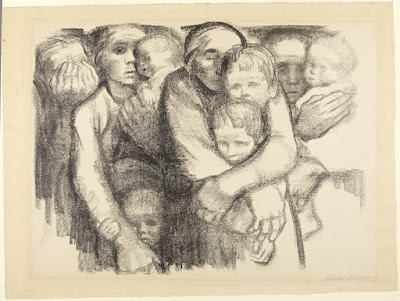John Allen and Thomas Reese appear not to understand what it means for the Catholic church to declare someone a saint — as it did so with reckless speed when Pope John Paul II was canonized immediately after his death, to the consternation of not a few Catholics who thought that John Paul's papal legacy was more than a little mixed.
As we're now finding out, it appears very clear that, as archbiship in Krakow, he covered up sexual abuse of minors by priests.
Allen and Reese say that, well, canonization doesn't mean the saint wasn't a sinner like the rest of us.
In the CBS News report I've linked above, Anna Matranga writes,
Allen said canonization was "a finding that despite whatever human failures or limitations in judgment his papacy may have reflected, there was nevertheless a genuine holiness of life about the person of the pope. Undoubtedly, supporters of John Paul II will say the same thing vis-à-vis his record on the abuse crisis."
And she quotes Reese to say,
Canonization does not mean that the person was perfect, that they never did anything wrong, that they never sinned. They are people of their times with many of the blind spots and even prejudices of their times. Many aspects of their lives can be admired and imitated while at the same time recognizing that they made mistakes and even sinned.
But none of this is the point. We all know that every saint is a sinner just like us, and that canonization doesn't imply that the one made a saint was not a sinner. This is, however, not the point about the furor that John Paul II was made a saint — immediately. The point is that canonization holds the saint up to all of us as a model for the Christian life.
In what sense is a man a saint when he has a position of authority that allows him to protect minors from abuse but protects their abusers instead? We're told repeatedly that the saints are our role models in the Christian life.
In what sense is a pastoral leader who has the ability to protect children from abuse but protects their abusers instead a role model for the Christian life?
That's the important question at stake here.
What is the Catholic church communicating to those sexually abused as minors by religious authority figures when it canonizes John Paul II? What is the church communicating to all of us who care about those abused in this way, and about the church itself as it harbors child molestors?
What are John Allen and Thomas Reese communicating to abuse survivors? To those who care about abuse survivors? Whose interests does their analysis serve?
Why are these the voices that, over and over, are allowed to posture as "the center" in Catholic conversations and as the Catholic church communicates its values to the public square? What has the Catholic church communicated to the world in canonizing John Paul II, and what are John Allen and Thomas Reese communicating to the world about Catholic values in defending this canonization>
These questions are very much worth asking, it seems to me.

No comments:
Post a Comment